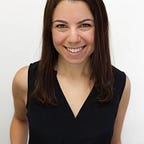Building Apps with the White House: iOS Engineering that Impacts Communities
Solving the world’s problems with technology is a big feat, but with the right data, a bit of creativity, and diverse perspectives, it’s starting to happen. On Saturday, June 4, countless coders, government employees, and city residents will come together for the National Day of Civic Hacking 2016. Together, they will collaborate toward a common goal: Leveraging their skills — and an unprecedented amount of open data provided by the White House — to build applications that address the challenges of our communities.
We’re thrilled to share that some of the people pioneering big changes for our communities are Flatiron School’s own students. With access to the White House’s APIs granted through the Opportunity Project and a healthy dose of our students’ own ingenuity, we’ve seen some unique solutions to challenges in our own community.
I talked to the two groups of students from Flatiron School’s most recent iOS course, who partnered with White House to build iOS apps aimed at helping their communities.
Safey NYC app
Safey NYC, built by Irina Kalashnikova and Felix Changoo, helps residents of the city feel safe in their neighborhoods.
Like thousands of other New York City transplants, Irina wasn’t always sure which routes were safest when she first began to explore the city. In situations where she felt even the slightest concern for her safety, Irina felt her only real option was to call the police.
But instead of keeping 911 on speed dial, Irina and Felix built an app that gives users detailed information about the block where they’re standing — listing what felonies have occurred around users’ current locations (or anywhere in NYC). The app can also give walking directions to the nearest police station, or alert friends that you’re in danger by just tapping a button. While many mapping apps can tell you where you are, Felix says the group’s main goal with Safey NYC was addressing the question: “Am I safe here?”
Aside from solving a problem relevant to other New York City dwellers, Irina learned more than just the safest route to her favorite deli: “It’s my first app in Objective-C, so I learned a lot about how to connect different APIs, such as Google Maps’ API and NYC Open Data. And working with the instructors and advisors from the White House was very valuable. They were collaborative and I really got to experience the best of a team environment.”
Felix echoed her statements: “We learned how to be developers who aspire to make a difference through their work. It was an exciting and unbelievable opportunity! We’re honored to be given the rare chance to not just ship our app to the App Store, but to also have the White House associated with it.”
FarmSquare app
The FarmSquare team, which included students Julia Geist and Sloba Kovrlija, introduced an app that makes locating nearby produce a cinch. Not only does the app benefit farmers trying to profit from their hard work, it also allows low-income families or those in areas where it’s tough to find healthy food shop at farmer’s markets that accept benefits, such as SNAP and WIC.
“We all added our own perspective and skills to collaborate on this project, and we’re starting to see the impact our work has had,” Geist said.
Kovrlija credits his Flatiron School education in Objective-C and Xcode, as well as “inspiring and very helpful” guidance from the White House, for the app’s successful launch. According to the pair, technical skills were just as relevant as professional oversight. “The mentorship and guidance from the White House was useful in realizing our collective vision for FarmSquare. The White House reminded us of the importance and impact of our work and gave crucial perspective that helped us grow.”
Community is a central tenet at Flatiron School — not just the idea that learning is social, but that it’s our job to use what we learn and teach to strengthen our communities. One way we hope to do this is by bringing underrepresented groups into the software development community, through programs like Kode with Klossy, which targets young women, our NYC Web Development Fellowship for Foreign-Born New Yorkers, and our Mobile Dev Corps program — which happens to be the program that gave us the opportunity to work with the minds behind Safey NYC and FarmSquare.
We’ve recently taken this commitment a huge step further — a step overseas, in fact — with our partnership with Re:Coded. Together, we’ve launched a Fellowship to train Syrian refugees as software developers, restoring access to education and income to those who need it most while giving companies looking for remote talent a chance to bring in underrepresented voices to their teams.
Here’s to a great National Day of Civic Hacking! We’re excited to see what community challenges are tackled this year.
